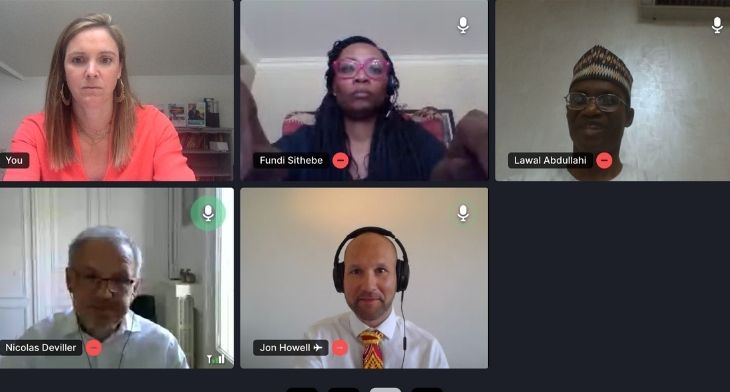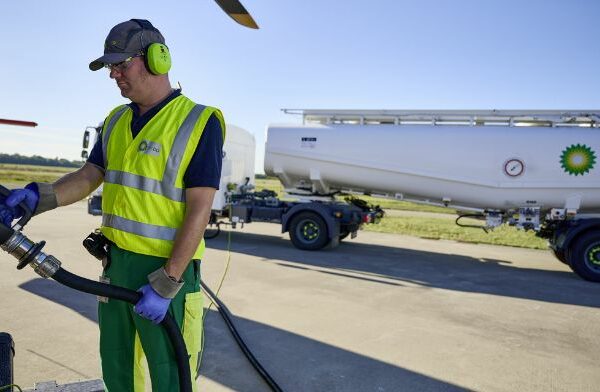Back in March before lockdown changed everything and it was still possible to fly pretty much wherever and whenever, I was lined up to attend several airport conferences and exhibitions. One of which was AviaDev’s African airport and airline event in Madagascar back in May. If you had told me at that point that instead of travelling and meeting my contemporaries in person, the following months would see me doing pretty much every meeting online including a virtual conference… Well, I probably would have said, “As if!”
Unsurprisingly, I didn’t travel to the island nation located off Africa’s east coast in the Indian Ocean in May – Madagascar’s borders remain closed with all international and domestic flights suspended. However, this week did see me take part in a virtual business conference that brought together airport and airline leaders from across Africa for a full day of networking, insightful conferencing sessions and panel discussions. All from my desk at home.


With South Africa having undergone one of the strictest lockdowns in the world, ACSA has now reopened all nine of the airports in its portfolio. However, international flights are still not permitted; the airports are only serving domestic traffic. As part of the ‘new normal’ ACSA has introduced mandatory health screening, self-service check-in desks and COVID-19 monitors (employees who support passengers as they move through the airport terminals).
Similar measures have been adopted at the airports operated by FAAN. These include passengers being encouraged to check in before arriving, contact between staff and passengers during security screening being kept to a minimum and bags being disinfected before being allowed inside the terminals.
While Madagascar’s airports remain closed, Nicolas Deviller explained how Groupe Aéroports de Paris (ADP), which formed the Ravinala concession in Madgascar, is exploring the introduction of a new international sanitary standard in air travel (in line with the European Union Aviation Safety Agency (EASA) guidelines) to ensure health and safety standards are met throughout the traveller journey. Suitable for all size airports, the programme has already been tested in Benin, Guinea and Madagascar as well as other hubs around the world. The group has also introduced ‘sanitary corridors’ on certain flights between Paris Charles de Gaulle Airport and Réunion, with other hubs in Africa and elsewhere set to follow. The aim is to ensure consistent regulations and processes are adopted across different airports to minimise the risk of virus transmission and instil passenger confidence. Deviller stressed the need for continued collaboration between all stakeholders as the industry looks to a post-pandemic landscape.
Fundi Sithebe agreed, saying: “If there is one thing I’ve learned in this journey, it’s that collaboration is critical. This situation has forced us to integrate and we need to continue working together to ensure our standard operating procedures are aligned and that we have the same common desire to increase passenger confidence and bring air traffic back to levels that are as normal as they can be. I am pleased to report that ACSA and its airlines have been working well together.”
Lawal Abdullahi added that exploring non-aeronautical and more importantly ‘non-passenger’ revenues will be key to ensuring airports remain buoyant in the future. “We are looking at exploring all the unique opportunities offered by each of our airports, many of which offer extensive real estate opportunities. It could be that we look into property development, agricultural use or the option of building leisure attractions such as a shopping mall or cinema.”
The resounding message from the panel discussion was that while the depth of the downturn caused by the coronavirus pandemic is epic, the continent’s aviation sector is still ripe for growth. Yes, stakeholders will need to dig deep, business models will need to be rethought and preparing how to successfully navigate another pandemic must be integral to plans going forward, but airport leaders are ready to embrace this ‘new normal’.
You can read a full account of my session from Africa Tomorrow in the September issue of Regional Gateway magazine, so make sure you’re signed up to receive your complimentary copy.
As for me… I’ve adapted to my new working environment and being able to network extensively with colleagues far and wide via my computer has proved invaluable. However, I miss the ability to travel freely and meet with people face-to-face. And I can’t wait to fly out to Madagascar in June 2021 for AviaDev Africa’s postponed Aviation Development conference.
Have a great weekend,
Chloë Greenbank, Regional Gateway Editor.






